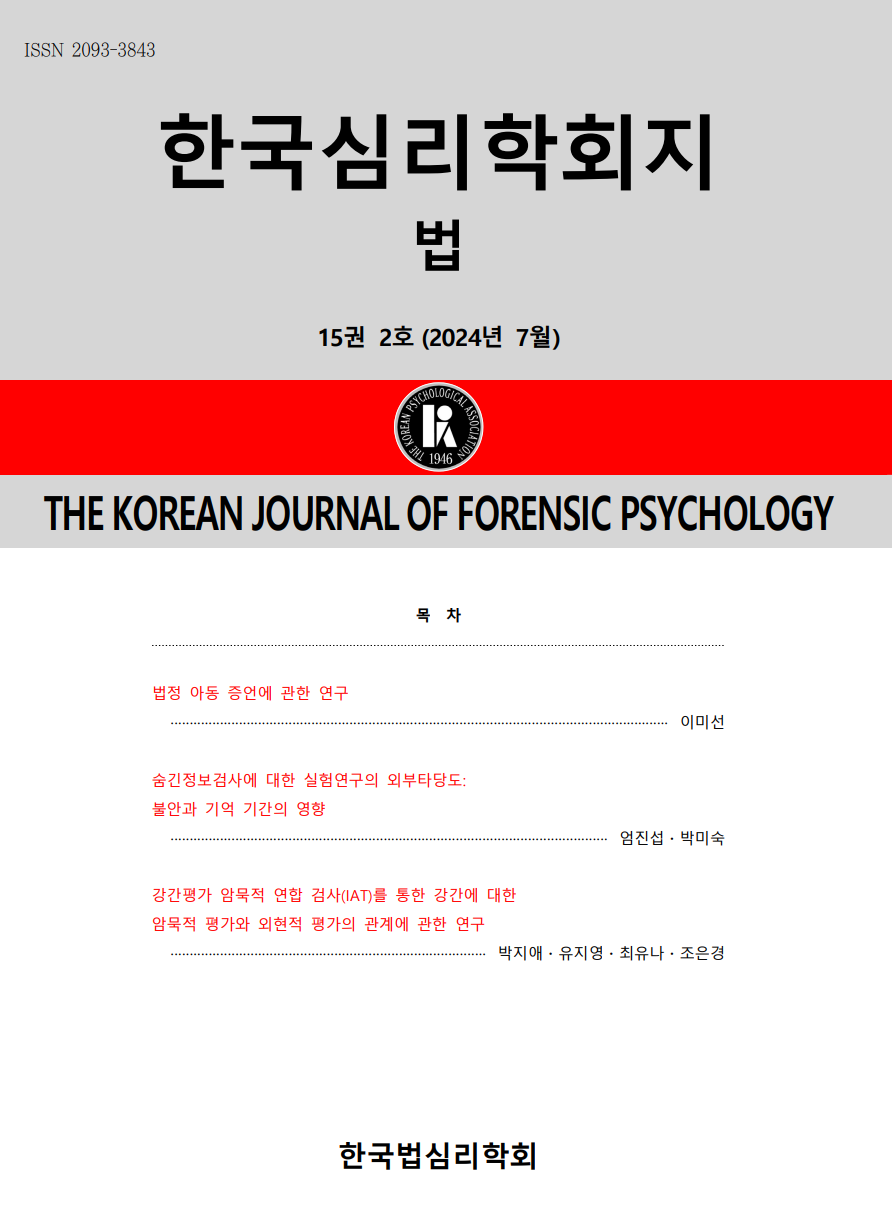 ISSN : 2093-3843
ISSN : 2093-3843
This study examined the effects of simultaneous misinformation on eyewitness memory. Two hundred forty five college students participated. In one condition (Simultaneous condition), participants viewed a video of a simulated crime simultaneously presented with accurate, misinforming, or neutral audio narrations. In the other condition (Post-event condition), participants read accurate, misinforming, or or neutral narratives after viewing the video. One week later, participants had a recognition memory test. The results showed memory about misinforming information was significantly less accurate and less confident than the accurate or neutral information categories, for both conditions. Overall memory accuracy and confidence rate were lower for the simultaneous condition than the post-event condition, although the accuracy for the misinforming information were not different between two conditions. There was no difference on memory accuracy between perpetrator related and environment related items. The results indicated the negative effect of simultaneous misinformation on eyewitness memory when there were changes of timing, modality, and attention about the misinformation from the previous post-event misinformation research.